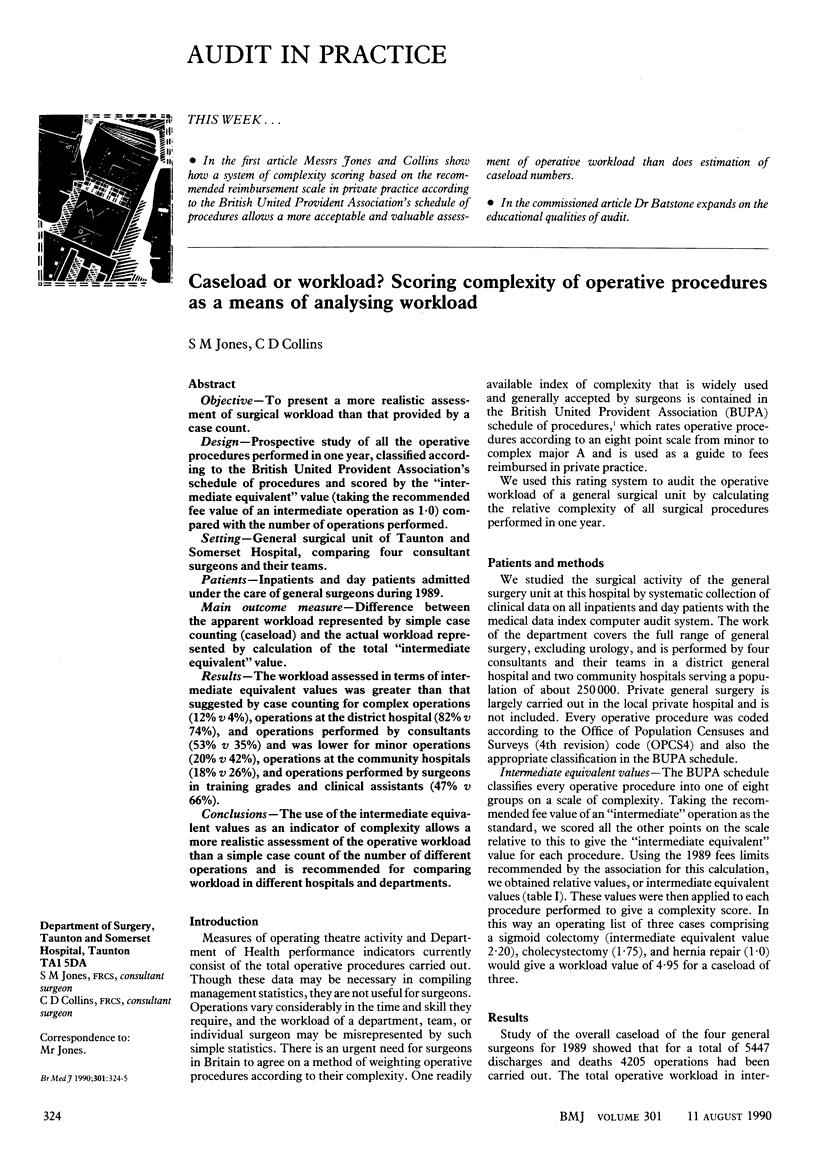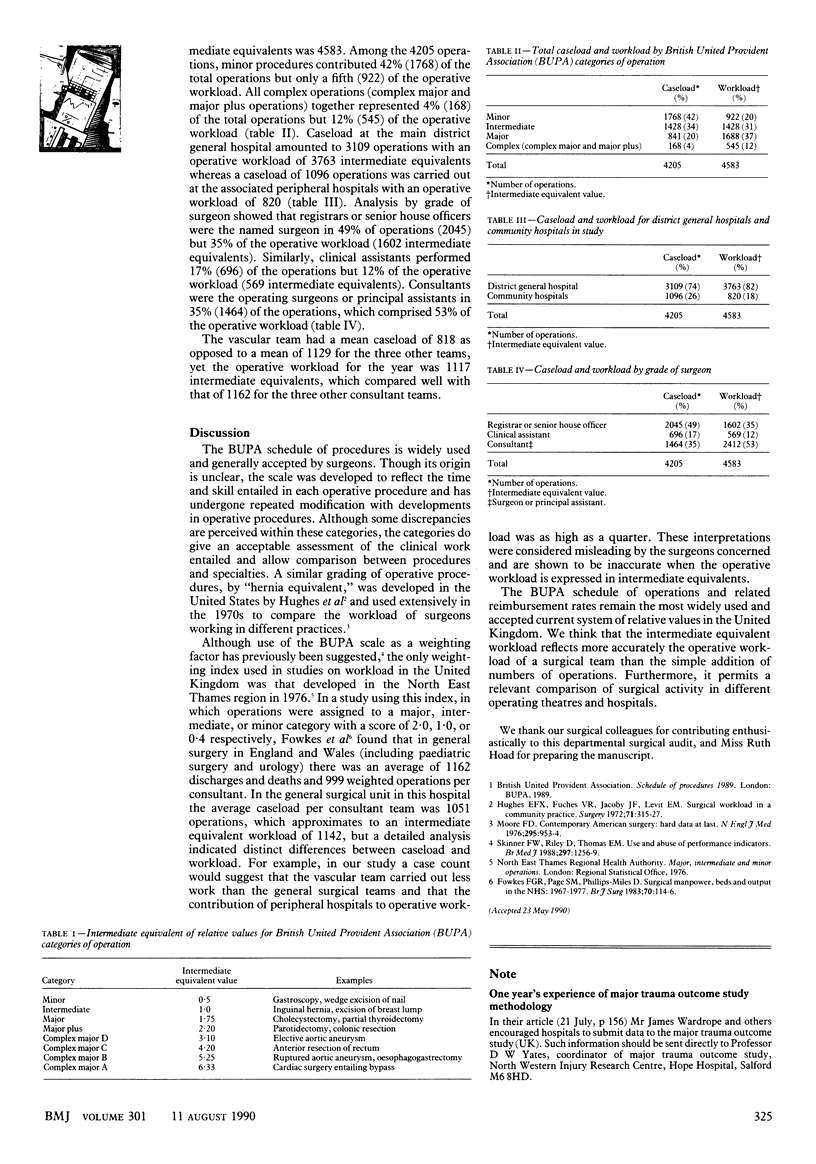Abstract
OBJECTIVE--To present a more realistic assessment of surgical workload than that provided by a case count. DESIGN--Prospective study of all the operative procedures performed in one year, classified according to the British United Provident Association's schedule of procedures and scored by the "intermediate equivalent" value (taking the recommended fee value of an intermediate operation as 1.0) compared with the number of operations performed. SETTING--General surgical unit of Taunton and Somerset Hospital, comparing four consultant surgeons and their teams. PATIENTS--Inpatients and day patients admitted under the care of general surgeons during 1989. MAIN OUTCOME MEASURE--Difference between the apparent workload represented by simple case counting (caseload) and the actual workload represented by calculation of the total "intermediate equivalent" value. RESULTS--The workload assessed in terms of intermediate equivalent values was greater than that suggested by case counting for complex operations (12% v 4%), operations at the district hospital (82% v 74%), and operations performed by consultants (53% v 35%) and was lower for minor operations (20% v 42%), operations at the community hospitals (18% v 26%), and operations performed by surgeons in training grades and clinical assistants (47% v 66%). CONCLUSIONS--The use of the intermediate equivalent values as an indicator of complexity allows a more realistic assessment of the operative workload than a simple case count of the number of different operations and is recommended for comparing workload in different hospitals and departments.
Full text
PDF

Selected References
These references are in PubMed. This may not be the complete list of references from this article.
- Fowkes F. G., Page S. M., Phillips-Miles D. Surgical manpower, beds and output in the NHS: 1967-1977. Br J Surg. 1983 Feb;70(2):114–116. doi: 10.1002/bjs.1800700220. [DOI] [PubMed] [Google Scholar]
- Hughes E. F., Fuchs V. R., Jacoby J. E., Lewit E. M. Surgical work loads in a community practice. Surgery. 1972 Mar;71(3):315–327. [PubMed] [Google Scholar]
- Moore F. D. Contemporary American surgery: hard data at last. N Engl J Med. 1976 Oct 21;295(17):953–954. doi: 10.1056/NEJM197610212951710. [DOI] [PubMed] [Google Scholar]
- Skinner P. W., Riley D., Thomas E. M. Use and abuse of performance indicators. BMJ. 1988 Nov 12;297(6658):1256–1259. doi: 10.1136/bmj.297.6658.1256. [DOI] [PMC free article] [PubMed] [Google Scholar]


